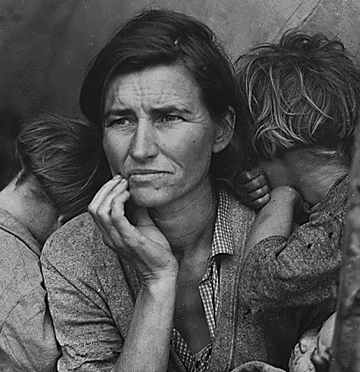
IF YOU READ the article on Global Storming last month, you will know why changes in weather patterns are making extreme weather so common, and natural disasters so much more likely. Then there are the signs of imminent economic collapse to consider, plus geopolitics, terrorism and disease. Finally there is the distinct possibility that each of us face that our home, our job, our family, might be the next one sacrificed on the roulette wheel of our national economy.
But the key question is: what do you do about it?
Resilience is far more in the mind that in the larder or the fuel supply. There are three principles for people to find meaning and inspiration when times are the blackest.The physical preparation, the year’s supply of food, the bug-out bag, the gold coins sewn into your coat – the most obvious manifestations of preparedness — are not the most important things that will see us through troubled times.
The first is to be at one with your community. It is not selfish survivalism that will inspire most of us to live through floods, fire or famine. It’s the help of others, and the helping of others, working together for a common goal — not just survival but shared life, that is key.
The next principle is to lead a healthy lifestyle: Eating, sleeping, exercising healthily – all add meaning, and underpin our instinctive belief that life is worth living even when times are hardest. These activities also reduce stress levels and help combat physical illness .
Finally, there is one more thing that everyone facing disaster should do, and that is to live in the moment as much as possible. Don’t look back to what was, or forward to what might be. Instead, put all physical and emotional energy into surviving in the moment and helping others do the same.
In the book Man’s Search for Meaning, psychiatrist and Holocaust survivor Viktor Frankl studied people who survivors in extreme circumstances. Each had something important that they needed to live for, something that gave meaning and purpose to their lives.
Preparedness is relative. With the exception of earthquakes natural disasters usually strike after a warning. So most people have some chance to prepare for a calamity, physically but rarely emotionally. Remember as you prepare: Community, Health, and the power of Now.
3 Responses
Frankl, who was in a concentration camp, observed that he could fairly well predict who would not live through the day. They clearly had given up, let go of whatever they had been living for. I have not finished the book yet, but Frankle makes some points worth consideration.
If you are going to use a famous photograph for your page you should at least give credit to the photographer.
photograph of a migrant agricultural worker’s family. Mother aged thirty-two, holding a baby while two other children lean on her shoulder, Nipomo, California, March 1935. The mother is Florence Owens Thompson, born Florence Leona Christie. This image is known as “Migrant Mother” photographed by Dorothea Lange.
“….studied people who survivors in extreme circumstances. Each had something important that they needed to live for, something that gave meaning and purpose to their lives.” The problem with this view is I’ll bet that pretty much everybody who died under extreme circumstances also ” had something important that they needed to live for, something that gave meaning and purpose to their lives.”